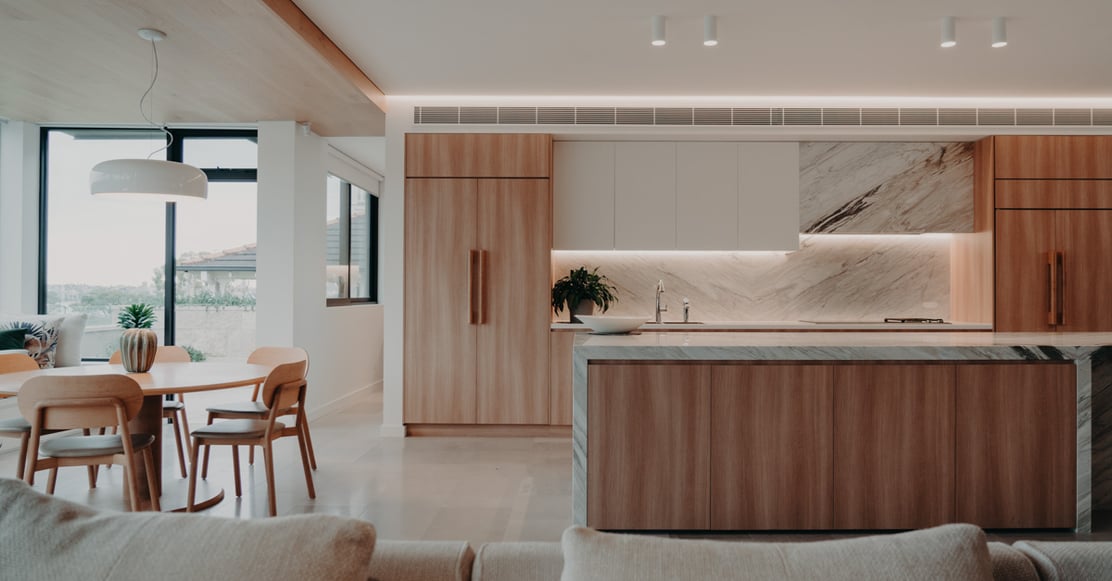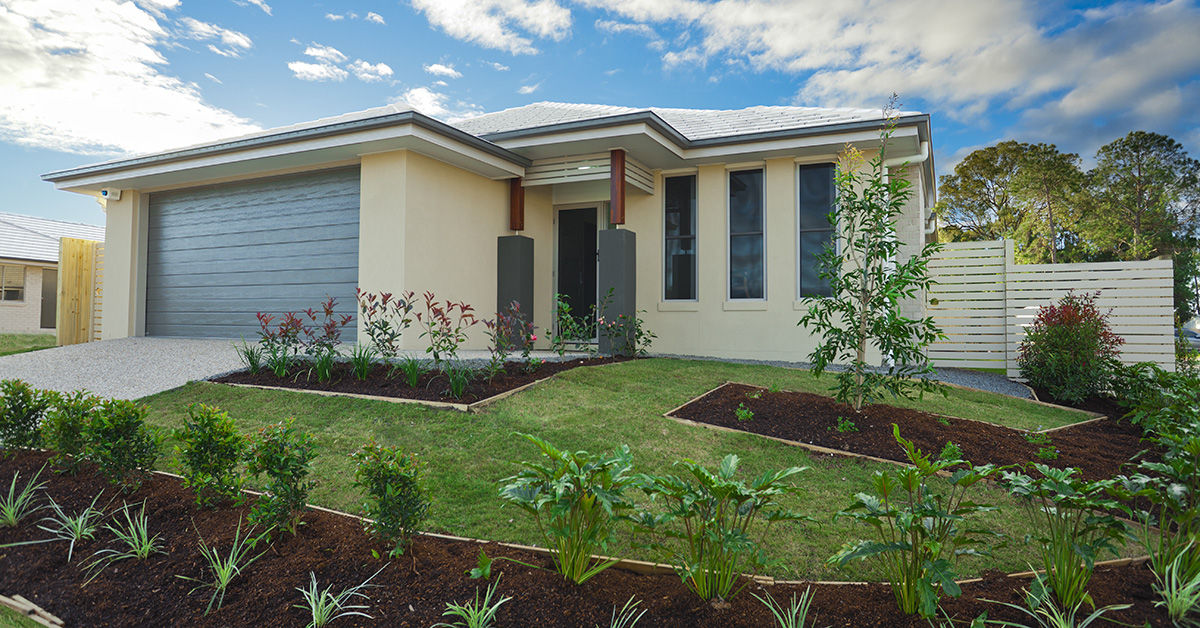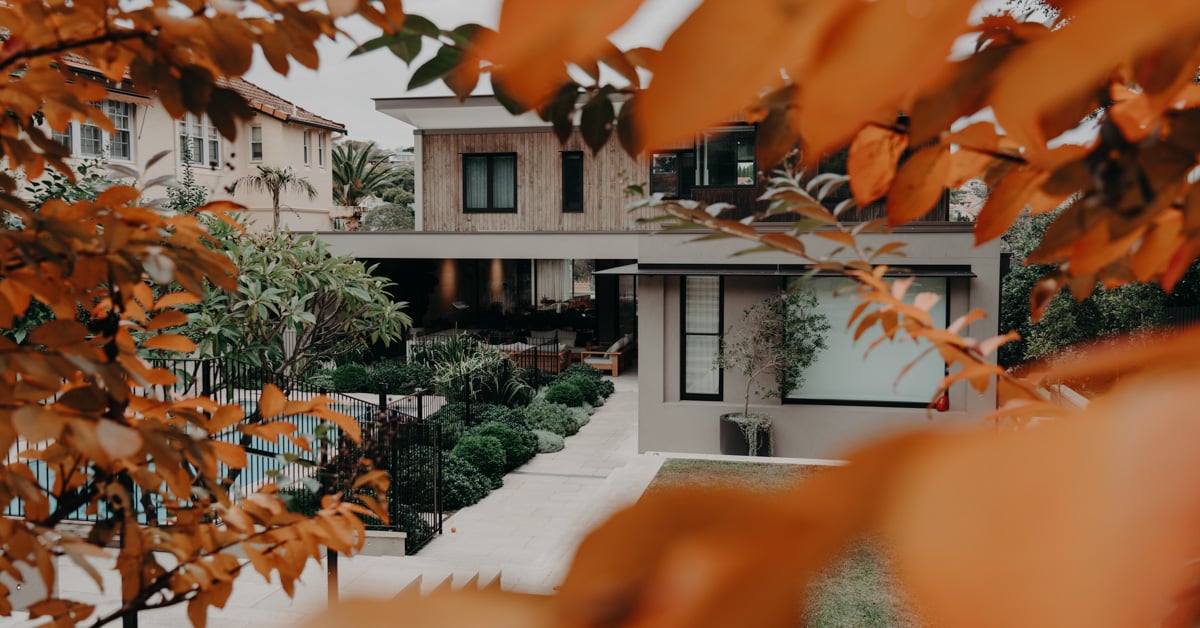The 5 Considerations You Need To Make When Upsizing Your Home

If you have outgrown your current home, are planning to expand your family, or simply want more room to accommodate guests, then it might be time to upsize.
Upsizing your home refers to moving to a larger house than the one you currently occupy. Whether that’s a property with more square footage, a larger backyard, or a multi-story home, the main benefits of upsizing are more space and comfort.
However, there are additional advantages to upsizing other than extended space. Larger homes generally hold more value than smaller properties, meaning they are a good long-term asset to invest in.
Whatever your current circumstance, here are a few things to consider when upsizing your home.
What to look for in a larger home
When it comes to buying a property, knowing what you want or need in a new home will help make the decision process easier.
Before you start looking up properties, sit down with your partner or family and discuss why you are choosing to upsize. Reasons can include:
- To have more bedrooms to accommodate existing family or additional children
- To accommodate an elderly relative
- For work-from-home opportunities
- As an investment property or hopes of potential financial return
- More yard space for the kids/pets
If you still think upsizing is the right choice, then it pays to also factor in how much space you really need. Are there possibilities of staying where you are and simply extending? For example, if your home is feeling a little tight due to older teenagers inviting friends over, is there a possibility that they may move out in the next few years? Will you still need extra space then?
To buy first, or sell first
You might have already found your dream home. It’s spacious, has enough bedrooms, and ample yard space. While you might be tempted to buy this home before you sell your current place, take a deep breath and consider your options.
Typically, it is better to sell your home before buying a new one. By doing so, you will have the funds ready and will know what your budget is. You will also be able to make a larger down payment on your mortgage and avoid having to juggle two mortgages at the same time.
If you do sell first, you will need to find temporary housing until you can move into your new home
If you absolutely have to buy before you sell, it is a good idea to meet with a real estate agent and get an appraisal to estimate how much your current home is worth and to get more detailed info on your local market.
Start by preparing your home to sell
For a better chance at selling your current home, you need to style it so that it is buyer-ready.
Preparing your home to sell includes decluttering and having all interiors professionally cleaned. Tackle any of those lingering repair jobs and make any necessary home upgrades to put your property in the best position to sell.
98% of our top agents agree that property styling is a must prior to putting your home on the market.
Styling your property will help you achieve a higher selling price and attract more buyers. If you aren’t in a position to hire an expert to style your property, think about the following upgrades:
- Add a fence or repair your existing one
- Increase curb appeal with landscaped front garden
- Make your house number clearly visible
- Clean windows, gutters and roof
- Pressure wash driveway
- Add outdoor lighting
- Freshen up interior paint
- Get rid of clutter
- Replace old tap and light fittings
- Steam clean carpet, polish floors
Make sure you can manage the upkeep
Moving to a bigger home has some great benefits, like more space for your kids to play or lots of room for entertaining guests.. That said, it comes with new responsibilities.
One of the most obvious - cleaning. Since it’s a bigger space, you will have to allocate more time when doing housework. Similarly, if you have a larger yard space, you will have to devote more time to landscaping and yard maintenance, or even pool cleaning.
Prior to making any decisions, think about whether you will be happy with the extra responsibilities, whether you can afford extra help in the way of professional cleaning/landscaping services, or if going bigger might be more than you bargained for.
Choosing your dream home
Upsizing is not a decision to be rushed. You should take your time and make the call when the time is right.
Start by compiling a list of all your must-haves, from the amount of bedrooms needed to yard space and floorplan, having a list of your required features will help you to narrow down your search. In addition, check your list against other requirements such as location and price point.
Ultimately, you want a home that can grow with you and accommodate your family or life circumstances. Try to think long-term, with considerations for potential growth of your family and the need for spare bedrooms or room for a granny flat. Another thing you may want to look into is whether this will be your ‘forever home’ or if there is a possibility of downsizing in the future (for example, during retirement).
Upsizing and Stamp Duty
If you are buying a larger house one of the key considerations when upsizing is Stamp Duty and all the extra admin that comes with that. Upsizing means that you will have to pay Stamp Duty. The only buyers who are exempt or subsidised on a pro rata basis from Stamp Duty when buying or building a larger home are first-home buyers. This cost can be substantial depending on the size of the property you are buying, so be sure to understand exactly what fee you will be paying and factor it into your budget.
Alternatives to upsizing
To avoid things like Stamp Duty when upsizing, instead of moving to a larger home, you might explore renovating your home or remodeling your current space. This could involve adding extra rooms, expanding existing rooms, or reconfiguring the layout to maximise space utilisation. Renovations can often provide the additional space you need without the hassle of moving. Another alternative is to build a granny flat (if your local permit laws allow) or an outdoor/indoor room – which provides extra living space without dramatically changing the layout.
Another option when upsizing your home is to consider expanding vertically rather than horizontally. Adding an additional floor or converting an attic or basement into usable living space can offer extra room without altering the footprint of your home.
Finally, if you don’t have a budget that will allow for a new home purchase or build, you may look into exploring shared housing arrangements with friends or family members who could provide the additional space required without the need for everyone to move to a larger property.
Resale value
Another consideration to make when upsizing is the resale value of your current home. Upsizing often involves selling your current property to finance the purchase of a larger home. Understanding the resale value of your current home helps in determining its contribution to your overall financial plan. A higher resale value means a potentially larger down payment for your new home or increased equity for future investments.
If you are expanding your existing home, making upgrades or improvements that positively impact the resale value of your home can increase its market appeal and fetch a higher selling price, thereby maximising your return. This is especially true if you are in a desirable location.
Upsizing your home as an investment
Upsizing a home for investment purposes can be a strategic decision, since larger homes often command higher rental rates. If you are thinking about buying an investment property, determine if upsizing aligns with your long-term investment strategy. Consider whether you're looking for steady rental income, potential resale profits, or both. Align your investment goals with the upsizing decision to maximise returns. Also be sure to understand the tax implications associated with owning a larger property. Investigate property tax rates, potential tax deductions, and other tax considerations related to upsizing for investment purposes.
Key Takeaways
- Think about why you want a bigger home
- Decide what key features you want in your new home
- Consider a home appraisal before selling/buying
- Style your home to boost your chance of selling
- Understand the responsibilities of owning a larger home
- Think long-term before making a commitment
Let LJ Hooker help you to upsize
Moving to a bigger house comes with a lot of consideration and decision-making.
If upsizing is ultimately in line with your financial and personal goals, then it could be worth doing. Prior to making any decision, it’s important to get a good overview of your current financial status and to meet with an agent to discuss your goals along with getting an appraisal for your property.
DISCLAIMER - The information provided is for guidance and informational purposes only and does not replace independent business, legal and financial advice which we strongly recommend. Whilst the information is considered true and correct at the date of publication, changes in circumstances after the time of publication may impact the accuracy of the information provided. LJ Hooker will not accept responsibility or liability for any reliance on the blog information, including but not limited to, the accuracy, currency or completeness of any information or links.



